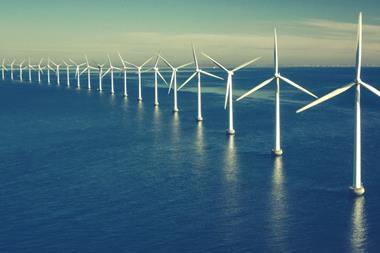The Glasgow Financial Alliance for Net Zero (GFANZ) has predicted that hundreds of financial institutions will launch climate transition plans in 2024.
In its latest annual progress report, the organisation noted the importance of “credible net zero transition plans that specify [an] entity’s goals, strategic actions, and accountability mechanisms”.
It said that, while a number of major institutions had already published such plans in accordance with its expectations, “we expect at least 250 more to follow over the next year”.
GFANZ has around 675 members, via its eight sub-groups, up from 450 two years ago.
Speaking on social media this week, the alliance’s head, Alex Michie, acknowledged it had faced pushback over the past year, chiefly in the US, suggesting that some of the opposition was “funded by questionable groups trying to undermine climate action”.
But he noted progress in spite of the “headwinds”.
“This year we’ve welcomed over a hundred financial institutions, two new net zero alliances, two regional directors, a Latin America and Caribbean Network, two country chapters, and increasing uptake of net zero transition planning and transition finance across the world,” he said.
The Venture Climate Alliance for early-stage investors was launched in April, and the Net Zero Export Credit Alliance was unveiled at this week’s COP28 climate summit.
Policy lobbying
GFANZ’s annual report also highlighted the growing push from investors around government policy.
“While private finance is actively supporting the transition, it cannot be a substitute for government policy, and significant policy gaps remain to be addressed,” the document stated. “GFANZ has been consistently engaged in efforts to create a supportive policy environment to accelerate the net-zero transition.”
In particular, the body will continue to push policymakers on the development of rules around transition plans, disclosure requirements and voluntary carbon markets.
It’s also involved in efforts to create national decarbonisation strategies, such as the Just Energy Transition Partnerships for Vietnam and Indonesia, which are expected to generate pipelines of investable projects in emerging and developing markets.
Speaking to IPE in September, Stefanie Maier, head of sustainable and impact investing at asset manager GAM, said the leading net zero investors “have got very close to as far as they can go” without new government policies.
This was echoed by Günther Thallinger, a board member at Allianz, and the chair of GFANZ subgroup the Net Zero Asset Owner Alliance, who this week said it was “critical that asset owners work to drive an enabling policy environment, without which it would be impossible for investors to fulfil their net-zero commitments”.
To encourage that, the alliance launched guidance for its members.
The Principles for Responsible Investment also launched a taskforce this week, which will convene global policymakers to accelerate the introduction credible, interoperable net zero policy.
The latest digital edition of IPE’s magazine is now available























